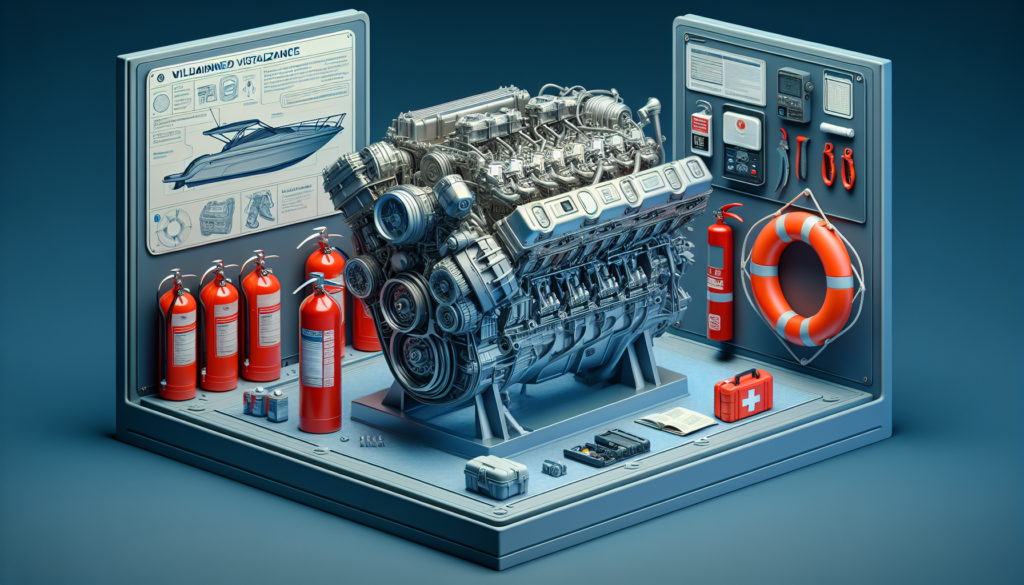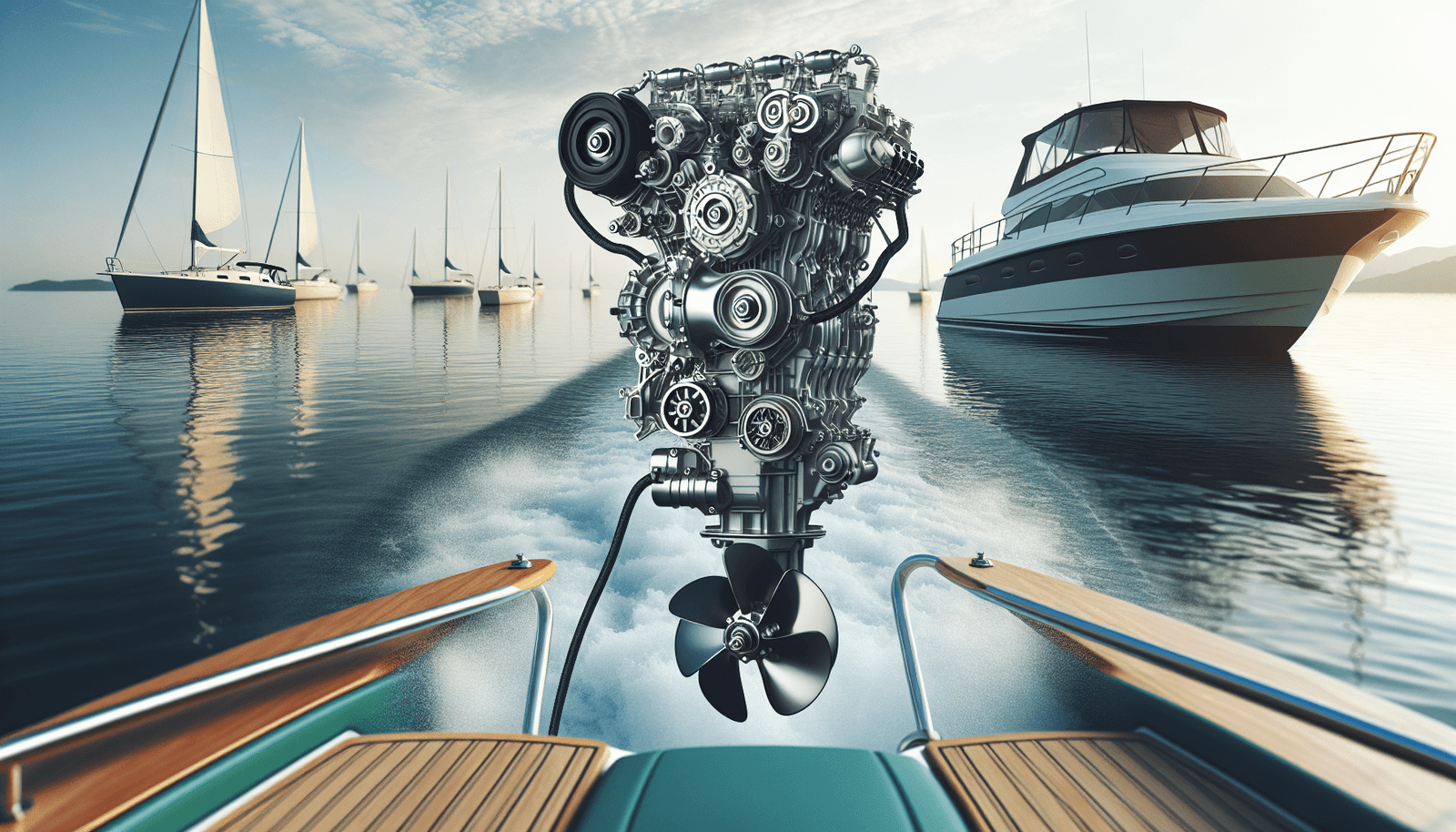Embarking on a boat voyage might feel like stepping into a whole new world, but just as you would in your car, boat engine safety should be paramount. In the following article, “Essential Boat Engine Safety Tips For Smooth Sailing”, you will become conversant with the vital guidelines and precautionary measures to implement in order to ensure seamless, worry-free navigation. From regular engine checkups, use of correct fuel, safety gear to emergency preparedness, these safety tips could be the difference between smooth sailing and a disastrous trip. So, before you drop anchor and sail the blue, arcane waters, getting to grips with these essential boat engine safety tips will make your journey much safer and more enjoyable.

Understanding Your Boat’s Engine
The heart of any boat is its engine. Understanding the ins and outs of your boat’s engine is more than just a hobby; it’s a crucial aspect of boating that ensures your safety and the longevity of your vessel. In this first section, let’s dig into what makes your boat’s engine tick.
Familiarize Yourself with All Engine Aspects
Dive headfirst into learning everything there is to know about your boat’s engine. This includes the type of engine your boat uses, the role of each component within the engine, and how each part interacts with the other.
Key Engine Components To Know
Certain components are crucial to the operation of your boat’s engine. These include the carburetor, fuel injection system, alternators, water pumps, and others. Each has a unique role that enables your boat to power through the water smoothly.
Understanding How Your Engine Operates
Everyone can turn a boat engine on, but do you really know what happens next? A concise understanding of engine operation lets you differentiate between ordinary engine noise and something potentially concerning. Arming yourself with this knowledge can save you countless repairs and potentially prevent a dangerous situation.
Fuel Safety
One of the biggest oversights boat owners make is related to fuel safety. Every trip made on the water is powered by fuel, and not managing it properly can hold serious consequences.
Choosing The Correct Fuel
There are several types of fuel available on the market, and the type your boat requires depends entirely on its engine. Use the wrong fuel, and you could end up with a damaged engine or worse. Never rush the fuel selection process.
Proper Fuel Storage
Fuel doesn’t last forever; it degrades over time, especially when exposed to air and sunlight. That’s why properly Storing Your Boat’s Fuel, in a cool, dark place like a well-ventilated shed, is crucial to ensuring its longevity.
Avoiding and Managing Fuel Leaks
Fuel leaks are a serious concern that can turn a perfect day at sea into a disaster in an instant. They threaten both the integrity of your vessel and the safety of your crew. Learn to spot the early signs of a leak, and deal with it immediately to combat potential hazards.
Proper Engine Maintenance
routine maintenance can save you an expensive trip to a mechanic and extend the life of your boat.
Consistent Engine Checks
Frequent engine check-ups are as vital to your boat’s well-being as regular doctor visits are to your own health. Stay on top of your engine’s needs; never let minor issues compound into major problems.
Cleanliness and Regular Oil Changes
A clean engine is a happy engine. Regular oil changes and a thorough cleaning of your engine keeps it running smoothly and reduces wear and tear.
Identifying Potential Issues Early On
The sooner you identify potential issues with your boat’s engine, the easier they are to manage. Listen for unusual sounds, pay attention to odd smells, and always take note of any changes in performance.
Dealing With Engine Overheating
Overheating is common in boat engines and can be extremely damaging if not dealt with promptly.
Identifying Symptoms of Overheating
An overheating engine will usually display a few clear symptoms. An unusually high-temperature reading, for instance, or steam or smoke coming from the engine area. Familiarize yourself with these symptoms, so you act quickly when they arise.
Steps To Prevent Overheating
Regularly checking coolant levels, ensuring good water circulation, and addressing minor overheating issues immediately can prevent serious problems in the future.
How to Deal with Overheating Mid-Journey
In case your engine starts overheating while you’re on the water, there are few steps you can take to minimize the damage, such as shutting down the engine and allowing it to cool or reducing your speed.

Safe Engine Starting Procedures
Starting a boat engine isn’t as simple as turning a key. Safety should always be first.
General Engine Starting Safety
Before starting your engine, make sure you’ve checked for fuel leaks and made sure all systems are clear and ready to go.
Using The Correct Cranking Technique
Cranking your engine excessively or incorrectly can result in damage. Ensure you understand the technique specific to your boat’s engine model.
What To Do In Case of Unsuccessful Starts
If your engine fails to start, don’t panic. Check your fuel lines, battery connections and try again. If problems persist, it might be time to consult with a professional.
Proper Battery Maintenance and Handling
A boat’s battery is as important as its engine. They work hand-in-hand to propel you through the waters.
Selecting the Right Boat Battery
The type and specification of your boat battery depend certainly on your boat’s engine requirements. Choosing the right one will make a big difference.
Routine Battery Checks and Maintenance
Just like the engine, your boat’s battery requires routine checks and maintenance. Look for any signs of damage or wear, replace the battery when its charge no longer holds, and keep it clean.
Safe Battery Disposal
When your battery has run its course, ensure it’s disposed responsibly. Batteries contain harmful chemicals and need to be disposed at a recycling center.

Emergency Engine Repairs
Despite your best preparation, emergencies can still arise. However, being prepared for them is half the battle won.
Having a Basic Repair Kit on Hand
An on-board repair kit can help manage small issues that would otherwise require a mechanic.
Understanding How To Use Repair Tools
Having a repair kit isn’t helpful if you don’t know how to use it. Spend some time learning about each tool and its role in basic boat repairs.
Knowing When To Call for Professional Help
Sometimes, despite your best efforts, a situation may need professional help. Recognizing when to step back and let the experts handle a problem can save you time and money.
Underwater Hazards
The open sea is a wide and wild place, with undercurrents, sandbars, and more lurking beneath the surface.
Being Aware of Shallow Waters and Foreign Objects
Staying aware of mapped shallow waters and keeping an eye out for unexpected obstacles can prevent damage to your engine.
How Underwater Hazards Affect Your Engine
Hitting underwater obstacles can result in immediate engine damage and even capsize your boat. Take precautions to avoid unnecessary risks.
Safety Measures for Navigating in Hazard-Prone Waters
When navigating risky waters, slow down, use your depth finder, and be prepared to take evasive action.
Boat Engine Winterization
Boats are usually summer toys, but what happens when the cold sets in?
What is Winterization and Why It’s Important
Winterization is the process of preparing your boat for the off-season. From fuel stabilizers to antifreeze treatments, winterization safeguards your boat’s engine through winter’s harsh conditions.
Steps for Proper Boat Winterization
From cleaning and draining to covering and storing, comprehensive winterization requires various steps. Following them ensures your boat stays protected and is ready to hit the waters as soon as spring arrives.
How To Safely Launch Your Boat Post-Winterization
Once spring arrives, there are specific steps to follow before launching your boat again. Follow them to make sure your vessel is seaworthy and safe.
Educating Your Crew About Engine Safety
The people on board your boat, whether they’re friends or hired crew, need to understand the basics of your boat’s engine operations and safety measures too.
Importance of Crew Understanding of Engine Safety
Knowing engine safety basics ensures that everyone on board can react appropriately in case of an emergency.
Crisis Management and Clear Communication
In crisis situations, clarity of action and good communication are vital. Regular drills with your crew can make emergencies less chaotic.
Basic Training on Engine Operation and Safety Procedures
Offer some basic training on engine operations and safety procedures to your crew. A well-informed crew can help in emergency situations and contributes to a safer boating experience for everyone on board.
The open sea is a marvelous place, filled with discovery and adventure. Keep these tips in mind, and you’ll be well prepared for many summers of smooth and safe boating.

